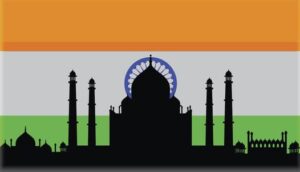“As far back as February of this year, the Unique Identification Authority of India (UIDAI), which administrates Aadhaar, issued a statement reminding government officials that they must provide services to citizens even when Aadhaar authentication fails…”
 India’s biometric national ID program has delivered some tremendous benefits to the country, but it has also led to multiple deaths, suggests a new NPR investigation.
India’s biometric national ID program has delivered some tremendous benefits to the country, but it has also led to multiple deaths, suggests a new NPR investigation.
The reports of deaths are attributed primarily to Jean Dreze, a Belgian economist who resides in the Indian province of Jharkhand. Dreze provided NPR with a detailed list he has compiled of a dozen individuals whose deaths over the past year were more or less directly tied to bureaucracy around Aadhaar. Many of the deaths were the result of authorities not issuing ration cards or rejecting claims for food rations when biometric authentication for Aadhaar failed. NPR’s reporters themselves offer one firsthand witness of a manual laborer being turned away from a food ration booth because his fingerprints were too worn for Aadhaar authentication.
It’s a bitter irony, given that India’s Supreme Court just issued a ruling that restricted the government’s ability to require Aadhaar to this essential service – the distribution of social subsidies, which was initially the Aadhaar program’s raison d’être before it was expanded to cover a wide range of applications, from opening bank accounts to enrolling in school.
These deaths and denials of service are indicative of a lack of clarity about how the Aadhaar program is supposed to work. As far back as February of this year, the Unique Identification Authority of India (UIDAI), which administrates Aadhaar, issued a statement reminding government officials that they must provide services to citizens even when Aadhaar authentication fails; and indeed, NPR’s reporters note that when they investigated one ration shop, they found that its paper-based “backup system” appeared to be unused.
In any case, this lack of clarity could be said to be a fundamental issue with Aadhaar, with UIDAI authorities repeatedly making alterations to the Aadhaar program and its protocols on an almost ad hoc basis as the program has evolved. That approach is probably part of why Aadhaar’s evolution has proceeded so rapidly, but it also clearly come with high costs – for some citizens, far too high.
Source: NPR
–
October 2, 2018 – by Alex Perala





Follow Us